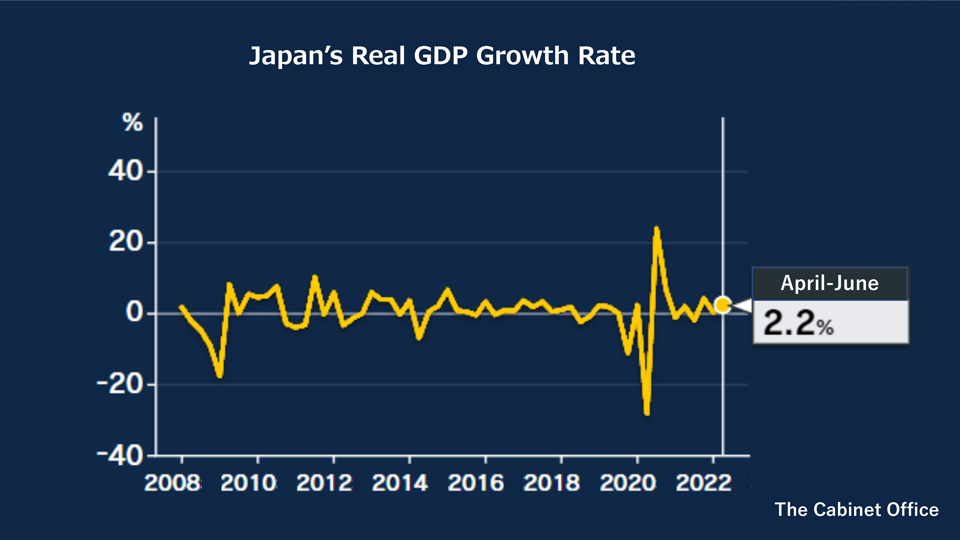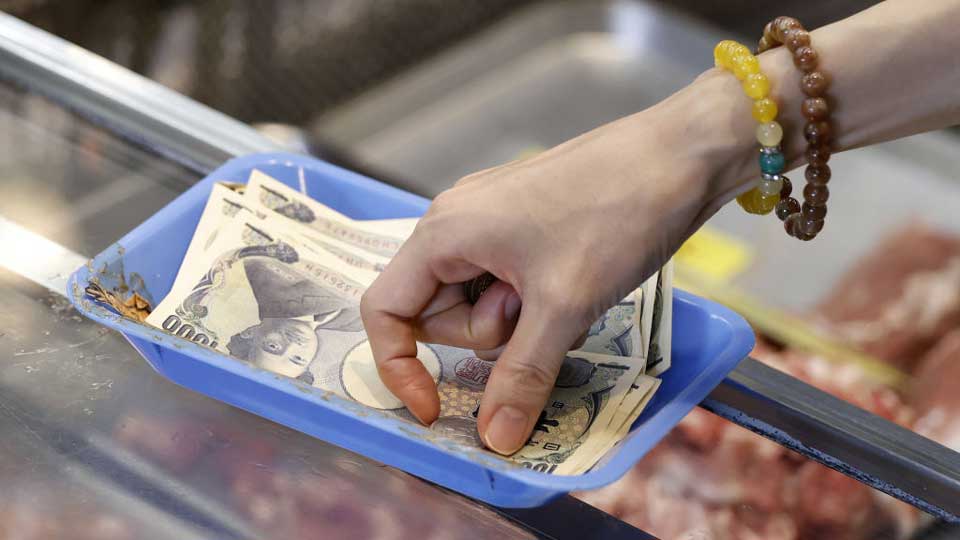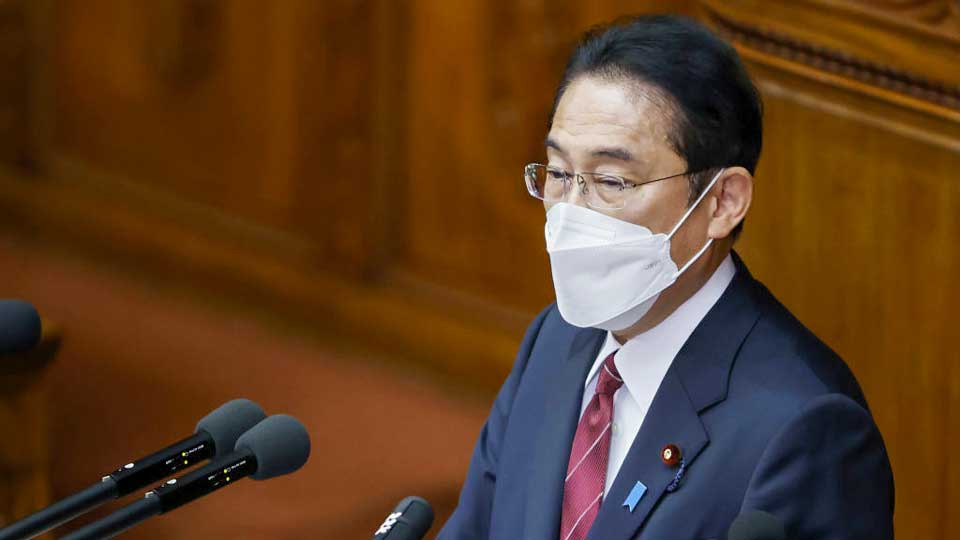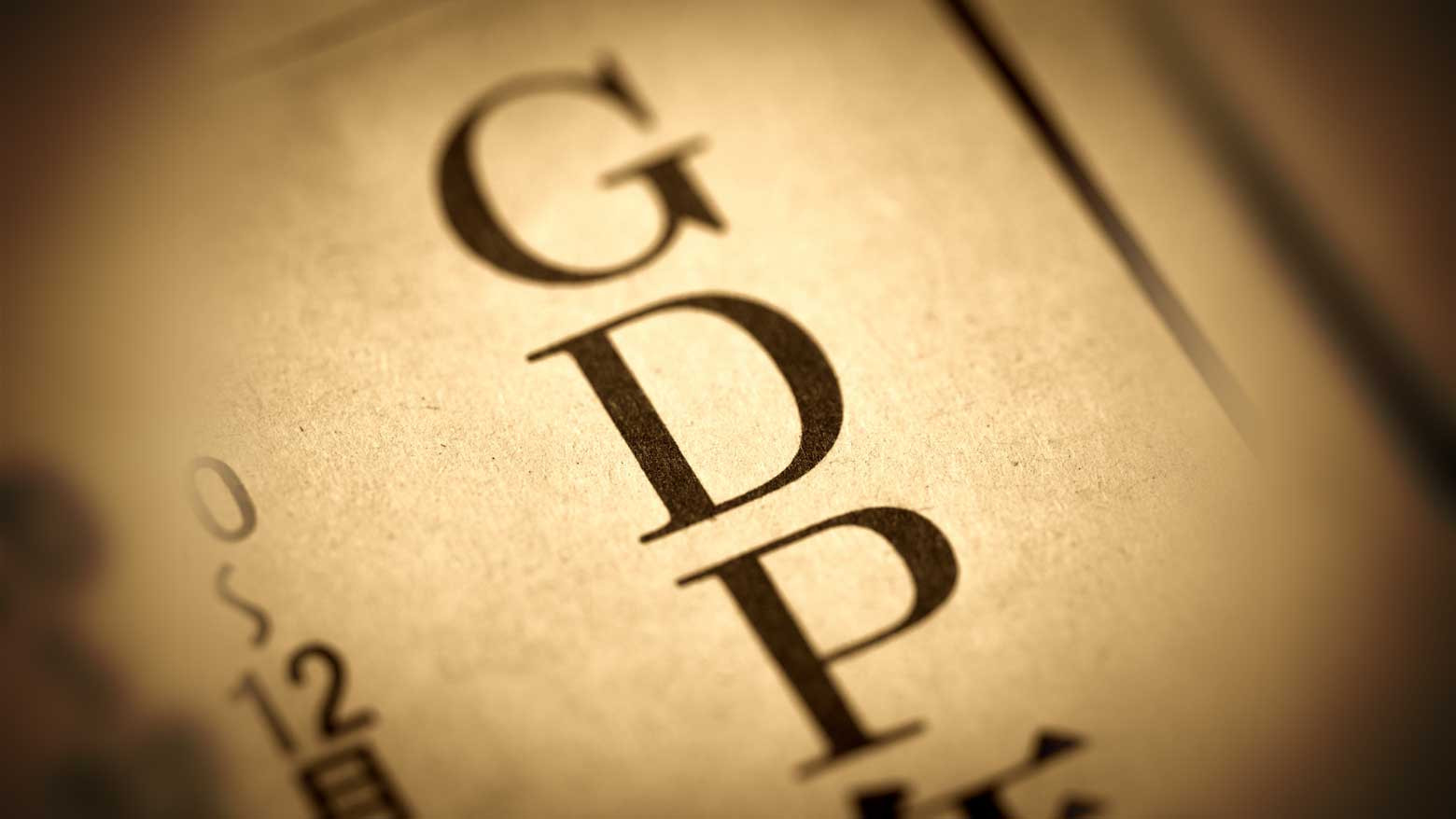Experts remain cautious
Japan's economy grew at an annualized rate of 2.2 percent in the April-June quarter, largely due to a rebound in private consumption after the government lifted all COVID-19 travel restrictions in March. Sectors such as dining, travel and leisure saw significant growth. Capital expenditure increased, too, with corporations investing in software and telework infrastructure. All of this helped drive Japan's economy to a level last seen in the pre-pandemic October-December 2019 quarter. Unemployment and workplace absenteeism figures also recovered to pre-pandemic levels. But most experts remain cautious about the future and some are outright pessimistic.

The specter of recession
Economists from the Bank of Japan and private enterprises believe inflation in Japan will hover around the 2 percent mark in the near term, but will drop back to 1 percent next year.
Consumer prices are increasing in large part because of Russia's invasion of Ukraine and supply problems stemming from the coronavirus pandemic -- neither of which are factors to underpin stable economic growth.
Meanwhile, inflation in the United States and parts of Europe has rocketed past 8 percent, stoking fears of a global recession, while the pandemic continues to hurt economies everywhere.
Commodity prices, including oil, have already begun to decline, but consumers are not feeling the effects. A government survey shows that an increasing number of people expect prices will increase by 5% or more within a year.
The reason for the gap between expert forecasts and consumer sentiment is that the steepest price hikes have affected daily necessities such as energy and food. In June, the price of electricity jumped 18 percent year-on-year, gas was up 22 percent and cooking oil was 35 percent higher. For low-income households, there is no choice but to rein in spending in other areas.

Looking ahead, there are concerns that Russia's invasion of Ukraine will cause energy prices to spike again this winter. European governments are buying large amounts of coal in anticipation of interruptions to the gas supply, driving up prices. This will likely hit Japan's economy hard as it is heavily reliant on thermal power generation.
The government has backed an initiative to raise the nationwide average hourly minimum wage by an unprecedented 31 yen – equating to around 4,900 yen for a 160-hour month – but it is feared that rising food and utility prices will dilute the impact. In mid-August, Prime Minister Kishida Fumio held a meeting to address the price hikes and ordered action to be taken, though there are no specifics about what that action might be.
A new growth strategy is needed
Business leaders are asking the Kishida administration to devise a new growth strategy and the means to implement it. The Kishida administration has faced criticism that its "new capitalism" policy lacks any concrete notion of what to do and by when.

For the past 20 years, Japan has neglected to prepare for the future. It has invested far less than other G7 countries in corporate capital expenditure, public- and private-sector research and development, and human resource development. The result is weak potential for economic growth, which is why the latest GDP numbers might not be quite the harbinger of recovery that they appear.

